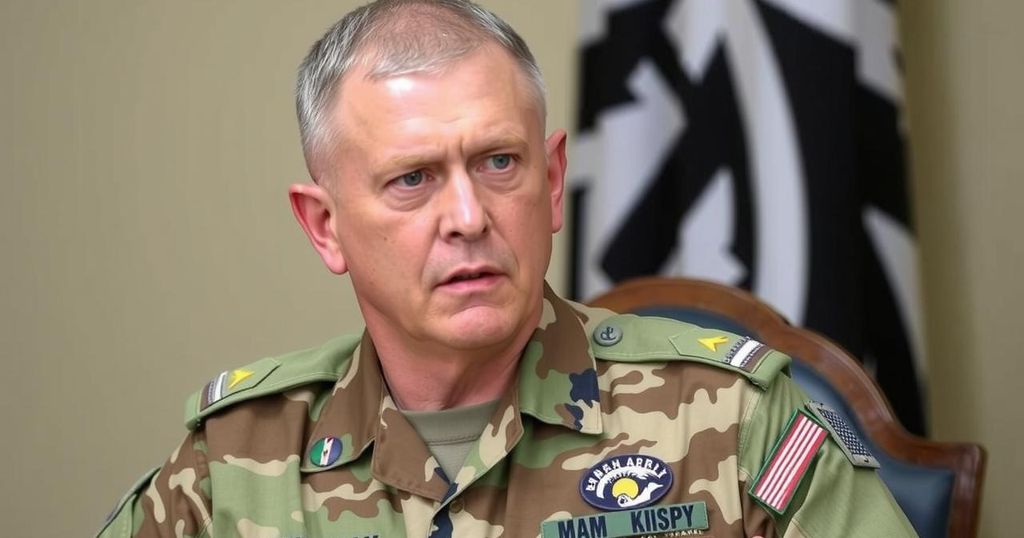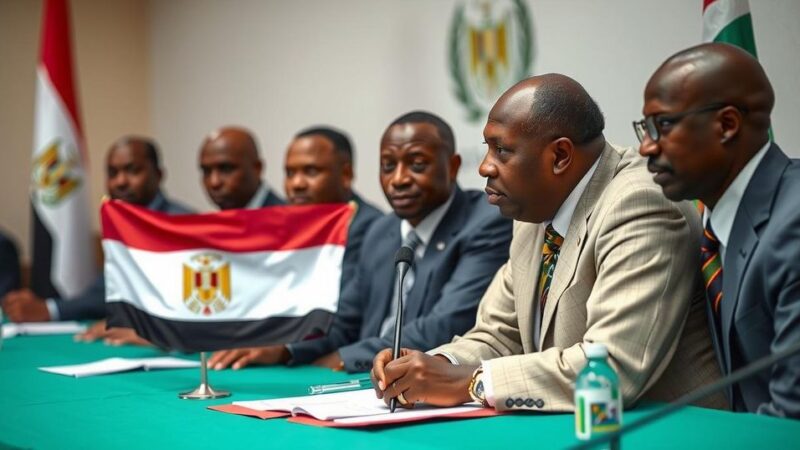Brig. Gen. Behrouz Esbati of Iran admits to significant defeats in Syria, criticizing both Russia and Assad for their roles in the failures. He outlines Iran’s struggles to launch attacks on Israel from Syrian territory and acknowledges the difficulties posed by domestic corruption and economic issues in Syria. Despite these setbacks, he claims Iran can still mobilize resistance efforts against the new leadership in Syria.
In a candid address, Brig. Gen. Behrouz Esbati, a senior Iranian military official, openly acknowledged the severe setbacks Iran has faced in its engagement in Syria, stating that the country was “defeated very badly.” His admission reflects a significant shift from Tehran’s usual narrative of resilience, highlighting frustration over Syria’s falling under opposition control and strained relations with Syrian President Bashar Assad. Amid criticism of Russia’s alleged misleading tactics, Esbati described Tehran’s attempts to plan attacks on Israel from Syrian soil as thwarted due to Assad’s refusal to cooperate.
Esbati characterized the loss of Damascus as a critical strategic failure, exacerbated by deteriorated domestic conditions and Assad’s rejection of Iranian military proposals. Additionally, he elucidated the impact of Russian bombings that targeted the wrong locations and revealed Tehran’s complaints about operational limitations posed by Israel’s air force. Furthermore, he implied a need for better collaboration between Iranian forces and the Syrian regime, suggesting substantial military plans remain unexecuted.
Despite these challenges, Esbati projected a desire for continued influence within Syria, claiming that networks established over years could be leveraged for resistance against the newly formed government. He expressed commitment to exploit social ties and digital platforms to foster cellular resistance strategies. However, skepticism arises regarding the practicality and efficacy of these ambitions, as noted by senior IRGC officials who perceive them as more aspirational than achievable.
Esbati asserted that the plights faced by Assad’s regime stem from systemic corruption, economic hardship, and inadequate public services, challenges he noted Iran had long urged Assad to address, to no avail. He acknowledged the limitations of Iran’s military options in response to threats from U.S. bases in the region, due to concerns about robust retaliation and defense capabilities.
The commentary by Brig. Gen. Behrouz Esbati reveals heightened tensions and complications surrounding Iranian military operations in Syria, especially in light of recent territorial losses to rebel forces. It underscores the complexities of Iran’s alliance with Assad’s government and Russia, as well as the implications of regional geopolitics and civil unrest stemming from years of conflict. Esbati’s remarks shine a light on Iran’s struggle to maintain strategic positioning amid significant adversities and the profound impact of diminished relations with essential allies, which complicates its operational capabilities in the region.
In summary, Brig. Gen. Behrouz Esbati’s declaration about Iran’s severe defeat in Syria signals a critical assessment of Tehran’s military strategy and collaborations in the region. His critique of both the Assad regime and Russian involvement reflects underlying tensions that may hinder Iran’s ambitions for regional influence. Although he envisions continued efforts to mobilize resistance, practical difficulties and complex geopolitical dynamics present serious challenges to realizing those plans.
Original Source: www.ynetnews.com







